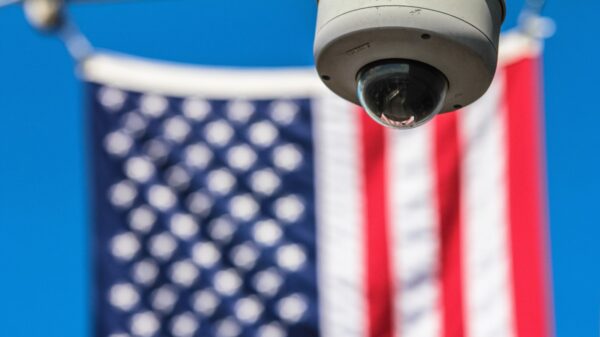In the 1920s, the innovation of air travel was just getting off the ground. One hindrance to commercial air travel were hopelessly outdated laws that allowed property owners to claim the sky above them as their domain. In 1926, Congress updated our laws to enable aviation technology to launch.
Congress needs to act again in order to keep our laws up with innovation. It is well established that the U.S. government does not have the power to execute a physical search and seizure in a foreign country. When evidence from foreign jurisdictions is sought by U.S. government officials (and vice versa), there are laborious procedures for doing so under complex treaties.
In 2013, Microsoft challenged a U.S. search warrant seeking emails stored in its Dublin, Ireland, data center. At the U.S. government’s request, a federal court issued the warrant under the Stored Communications Act – a U.S. statute governing the privacy of information stored with technology providers. In 2016, a federal appeals court sided against the government, ruling that the statute does not provide the authority for a warrant compelling Microsoft to disclose emails stored outside the United States. The decision was based on the well-established U.S. legal principle that presumes U.S. laws are meant to apply only within the territorial jurisdiction of the United States unless a statute explicitly provides otherwise.
Existing laws made sense for an era of floppy disks, landline phones and an encyclopedia that for most required a trip to the library to access. Much of our data today is stored via a network of remote servers spread throughout the world that allows us to access data from anywhere with an internet connection. Further, each nation has different laws on privacy and electronic storage, so what may be legally required to disclose in one country may be illegal in another. This leads to companies, not courts, having to choose between disregarding a court order from country A and violating the privacy laws of country B. Consumers also face uncertainty about the security of their electronic communications — such as email, text messages and email attachments.
The government has appealed the U.S. Supreme Court, which has agreed to hear the case. The federal government thinks its ability to assert jurisdiction over electronic data and documents in foreign countries should be treated differently. But to paraphrase former Secretary of Defense Donald Rumsfeld, you issue warrants based on the law that you have, not a law you might want or wish to have at a later time. A law that allows the federal government to issue warrants for electronic data in a foreign nation may or may not be sound policy, but it there a sound reason the appeals court ruled against the U.S.’s legal position of existing law: It is incorrect.
There are things Congress can do to fix these obstacles while ensuring our Fourth Amendment protections are fully enforced. New legislation has been drafted, the International Communications Privacy Act, or ICPA, which creates a clear framework for determining whether and when U.S. law enforcement may access an individual’s electronic communications, regardless of where those communications are stored. Specifically, the bill lays out when and how electronic documents are subject to warrants issued in the U.S. regardless of where the subject of the warrant may have the data physically located. Also included in the proposed bill is a provision enabling foreign nations to object to the warrant if complying with the warrant would violate its own laws. And of course, such a warrant would not be issued by the U.S. government unless the Attorney General and the Secretary of State concur that doing so would not unnecessarily impede U.S. interests.
In fact, the bipartisan nature of the bill has been highlighted with a recent letter from conservative organizations concerned with outdated laws. Writing to key Capitol Hill leaders on the issue, organizations led by Americans for Tax Reform, the Small Business & Entrepreneurship Council, and Citizens Against Government Waste called for an update to existing legislation from more than 30 years ago “which has been eclipsed by technology its authors could not foresee.”
For generations, a staple of political campaigns across the nation has been candidates touting their support for “innovation.” It’s time for those winning candidates to start following up on their rhetoric, and updating these terribly outdated laws and restoring the privacy protections to Americans are entitled to possess. Regardless of the outcome of this particular case, Congress should pass legislation as soon as possible to catch up with changing technology and the crooks that abuse it for their own criminal ends.
Photo by Jeff Dray 


























